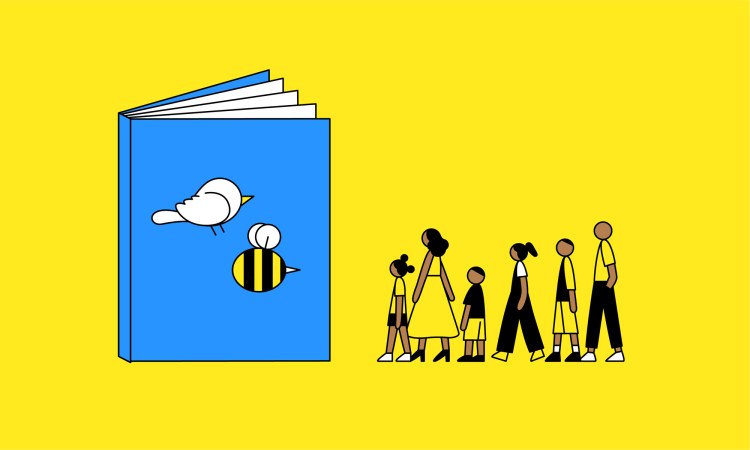
Today, it’s not enough to have one birds-and-the-bees talk; it needs to be an open, ongoing conversation. Author and activist Christa Desir explains why and how.
This post is part of TED’s “How to Be a Better Human” series, each of which contains a piece of helpful advice from someone in the TED community; browse through all the posts here.
The first few times I talked to high school students about sexual assault, when we got to the Q & A section, I was inundated with what I call the “Does that count?” question.
“What if we’re both drinking, does that count?”
“What if she said yes but then in the middle she changes her mind, does that count?”
“What if neither of us remember the next day?”
This happened with different high school groups, and eventually, I realized that something was wrong with my presentation. I said, “You know what? Let’s reframe this. Let’s put the legality of this aside, and let’s look at this from the perspective of our own values. Do you want to have sex with someone who doesn’t remember it the next day? Do you want to not remember it the next day? Do you want to be someone’s regret? Or, would you rather be someone’s enthusiastic ‘yes’?”
With these questions, the conversation changed. It got much more open, honest, authentic and vulnerable. It turned out their questions weren’t what was wrong; I was. I was too busy pointing out all the scary and dangerous places where sex can go that I forgot to talk about the wonderful, amazing, awkward and beautiful places. And I’m not the only one.
By only talking to our kids about the dangers of sexual violence, we’re leaving girls feeling afraid and boys feeling indicted. We need to give them the chance to explore their sexual curiosity, and we need to guide them through this very complicated, modern sexual world with transparency, honesty, non-judgment and vulnerability.
Unfortunately, we put sex in the same category of risky behaviors as vaping, texting while driving, and sniffing glue, instead of as something that many of us will do throughout the course of our lifespan. Furthermore, we’re failing to give our young people a language around consent. We are not helping them develop a voice to unapologetically own their “No”s and enthusiastically declare their “Yes”s.
How do we do this? The first step is to create an understanding in children around consent. This understanding needs to start young. They should learn about good touch and bad touch and the difference between them, that their bodies are their own to make decisions about, and that we are listening to them.
This might mean when you bring your child to a big family party, you don’t insist they hug and kiss every single person in the room. In schools, if it’s not a safety issue, perhaps we don’t require that they hold hands with the person next to them in a circle. What kind of message are we sending kids if we tell them, “Your bodies are your own to make decisions about, but you have to hold the next person’s hand because that’s the nice thing to do”? This is a mixed message, and it’s not good for kids. We also need to give kids the opportunity to say “Yes.” In my house, that means I’ll say to my son, “Hey, buddy, you look kind of sad. Could you use a hug?” and he’ll tell me if he does.
As a second step, we adults need to be advocates for comprehensive sexual education in our local schools. That includes positive representations of LGBTQI youth, information about birth control, instructions on how to use birth control, and information about STI’s. If you can’t make sex ed part of the school curriculum, then make sure it’s taught elsewhere in your communities or in your places of worship. And, of course, we must always keep having these conversations in our own homes.
As a third step, we need to accept that there is not just one sex talk we have with our kids. This should be an ongoing conversation, and you should continue it every opportunity that you have. So if you’re driving to school, listening to the radio, and your 11-year-old hears the morning DJ bring up porn — as morning DJs are wont to do — and your kid asks, “Hey mom, what’s porn?”, you might turn off the radio and then distract him by finding out what he wants for dessert. Or, you could answer the question. You don’t have to give him a full treatise on sex workers’ rights, but you could answer this one question and allow him to ask another one. That’s honesty.
The nice thing about sex being an ongoing conversation is if you muddle it the first time, you’ll always get the chance to do it again. In these discussions, we just need to be as open and non-judgmental as possible and admit that we’re not the captains of the ship who know everything. In fact, we are learning as much as our kids are.
Doing this makes you a person who is safe to talk to, and that’s who you want to be with your children. If they tell you, “Oh, hey, mom, I have this crush,” you could say, “Oh really. What are they like? What do you like about them?” instead of assuming that the person is a he or she. Similarly, if they tell you that their best friend is a “non-binary aro/ace,” you could say, “Oh really! What’s that?” If you know what that is, you could say “What do you think that means? What does that mean to you?” That’s how you open the conversation and how it keeps going.
As a fourth step, acknowledge that it can be uncomfortable at times to talk about sex. A few months ago, I had my 14-year-old son in the car with me. It was just the two of us, and this never happens. So I thought I would take opportunity to talk, and I turned to him. I said, “Hey, buddy, I just want you to know that if you have a wet dream, it’s totally normal. It’s very common. This happens to adolescent boys all the time. Just let me know because I can make sure we get the laundry done right away so it’s not a big sticky mess for two weeks.” He said, “Yeah, Mom, I know how to do my own laundry, but can you just pull over here on the side of the road? I’ll walk the rest of the way to school.”
As you can see, sometimes it goes wrong, but that’s all right as long as we keep showing up. With these conversations, we’re building the scaffolding — however rickety it might be — beneath our children so they can lead healthy sexual lives that are rooted in open communication and enthusiasm.
This piece was adapted from Christa Desir’s TEDxOakParkWomen talk. Watch it now:














